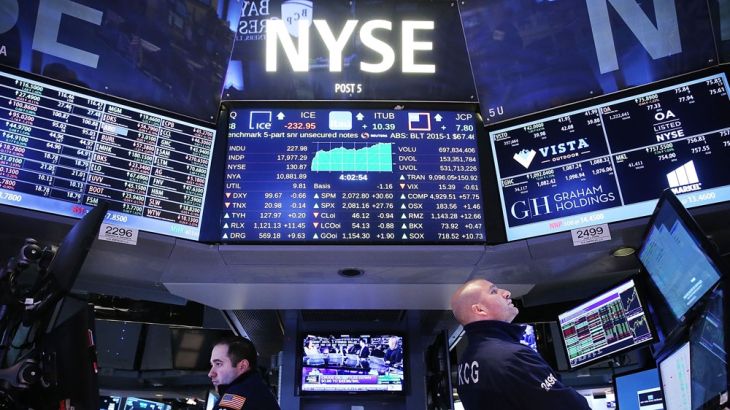
US 2016: How much does the economy matter?
A look at present economic woes and the future direction the country will take under whoever wins the White House.
The race for the White House has officially started and many voters in the United States are concerned about the state of the economy and the future direction the country will take.
When Janet Yellen, the head of the US Federal Reserve, gave her six-monthly monetary policy report to Congress recently, she said: “Financial conditions in the United States have recently become less supportive of growth, with declines in broad measures of equity prices, higher borrowing rates for riskier borrowers, and a further appreciation of the dollar. These developments, if they prove persistent, could weigh on the outlook for economic activity in the labour market. Still, ongoing employment gains and faster wage growth should support the growth of real incomes and therefore consumer spending.”
Keep reading
list of 4 itemsRussia’s Putin eyes greater support from China for Ukraine war effort
India-Iran port deal: A gateway to Central Asia or a geostrategic headache?
India’s income inequality widens, should wealth be redistributed?
If the economy is ailing, people tend to vote against the party in the White House, but what is the state of the US economy now compared with when the current administration came to power in 2009?
Unemployment has gone down from 7.8 percent in January 2009 to 4.9 percent in 2016. And while the gross domestic product (GDP) had a negative 2.8 percent growth in 2009, it registered 2.4 percent in the black last year. But interest rates have barely moved.
The economic recovery has been slow and uneven, and according to experts it hasn’t really felt rewarding to a lot of people, so there is a sense of uncertainty and a persistent recession fear across the country.
Where is the US economy headed? Is the US heading towards a recession? And will the economy decide the election?
Russell Jones, an economist from Llewellyn Consulting, joins Counting the Cost to talk about the state of the US economy and its impact on the presidential elections.
We also talk to Burke T Edwards, chief operating officer at the Texas Growths Fund Regional Centre, about an interesting scheme which brings money to the US: visas for sale and the economics behind it.
Also on Counting the Cost: The carnival has started in Brazil, the biggest party, the most famous Brazilian holidays. But does it have the same lure in times of a failing economy, a political crisis, and a health emergency?
Plus, Finland used to be one of the European Union’s most prosperous countries, but now it is second only to Greece on the worst-performing scale. Should Finland leave the eurozone and devalue its currency?
And, banning the big bucks: The EU has been urged to shred the 500 euro note because of its links to drug trafficking and the black market.